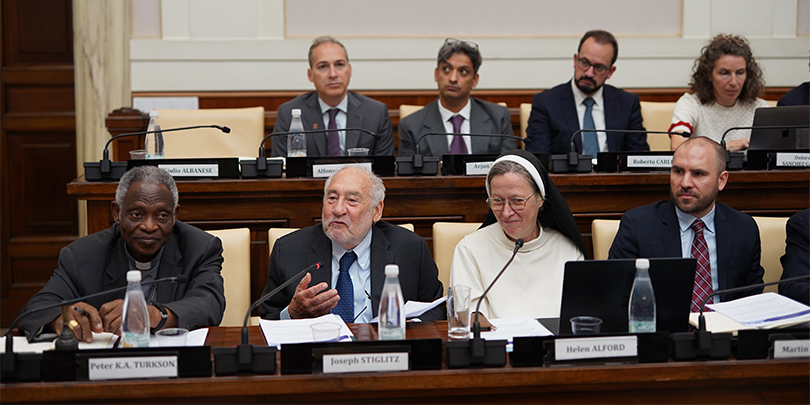
The Holy Year 2025 can have a lasting impact on the world’s poorest countries if governments and international institutions adopt a key element of the biblical concept of jubilee by forgiving, restructuring, or pausing foreign debt repayments, according to a report commissioned by Pope Francis. Source: CNS.
At the late pope’s request, the Pontifical Academy of Social Sciences and the Initiative for Policy Dialogue at Columbia University in New York brought together 30 global experts in debt, development and the global financial system to address the current debt crisis, prevent future crises and promote sustainable development.
The “Jubilee Commission,” which began meeting in February, released “A Blueprint for Tackling the Debt and Development Crises and Securing a Sustainable People-Centred Global Economy” on Friday at the Vatican.
“Today, 3.3 billion people live in countries that spend more on interest payments than on health, and 2.1 billion live in countries that spend more on interest payments than on education,” the report said.
“Interest payments on public debt are therefore crowding out critical investments in health, education, infrastructure and climate resilience.”
The indebted governments – “fearful of the political and economic costs of initiating debt restructurings – prioritise timely debt payments over essential development spending,” the report said.
“This is not a path to sustainable development. Rather, it is a roadblock to development and leads to increasing inequality and discontent.
“Development inherently involves risk – whether from long-term investments, exposure to commodity price fluctuations, or vulnerability to external shocks – and that sustainable development requires these risks to be distributed globally in an efficient and equitable manner.
“The burden should be borne by those most capable of absorbing it, which is not what the current system delivers,” the report said.
The experts also said there must be a fair way of responding to situations where a debtor nation simply cannot afford to service its debt while feeding its people.
FULL STORY
Finance experts launch report at Vatican on foreign debt relief (By Cindy Wooden, CNS)






